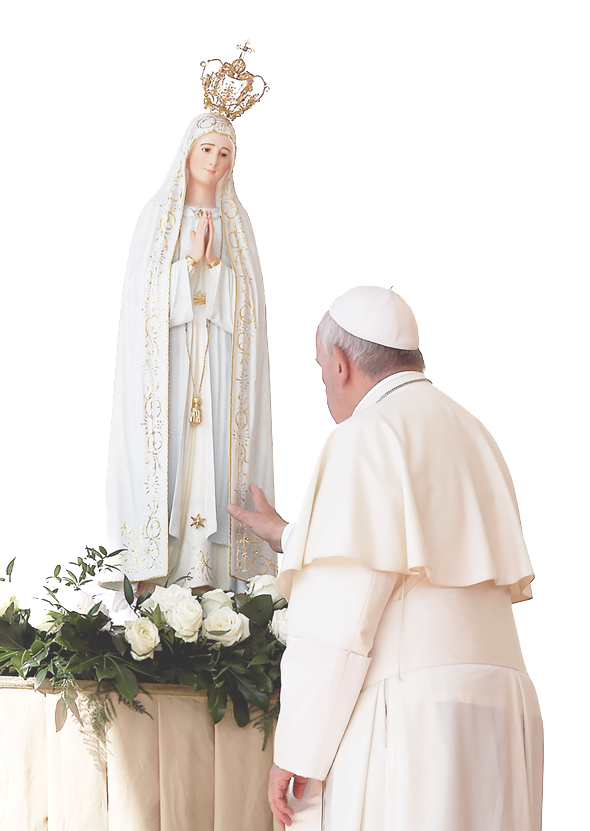
Sixth in a series
As I start to write this column, I am not quite certain that I will be able to communicate what I wish to communicate. Will I be able to find the right words? Will I be misunderstood?
Probably the best way to begin is by pointing out what Pope Francis has said about prayer in his Apostolic Exhortation, “Christ Lives,” which is addressed to young people and the entire people of God. Having made several beautiful comments about the friendship we should have with Jesus, Pope Francis writes the following:
“With a friend we can speak and share our deepest secrets. With Jesus too, we can always have a conversation. Prayer is both a challenge and an adventure. And what an adventure it is! Gradually Jesus makes us appreciate his grandeur and draw nearer to him. Prayer enables us to share with him every aspect of our lives and to rest confidently in his embrace. At the same time, it gives us a share in his own life and love. When we pray, ‘we open everything we do’ to him, and we give him room ‘so that he can act, enter and claim victory.’” (p. 73)
Pope Francis goes on to stress that the union we can have with Christ is closer and more intimate than any relationship we can have with any other person. He then quotes St. Oscar Romero: “Christianity is not a series of truths to be believed, rules to be followed, or prohibitions. Seen that way it puts us off. Christianity is a person who loved me immensely, who demands and asks for my love. Christianity is Christ.” (p. 74)
I love the idea the Holy Father puts forth that prayer is a challenge. What does that mean? I think of poet E. E. Cummings’ line: “Be of love a little more careful than of anything.” When we honestly open ourselves to God, anything can happen.
In any deep love relationship, we are changed by our loving and changed by the love that is returned by the one we love. What can happen when we become receptive to God’s love for us and return that love? Our lives can change dramatically.
Because of the love relationship we have with God, everything can be different. It is as though we are living in a new, beautiful and glorious world. If we are afraid to open ourselves and be receptive to God’s love, it may be that on some level we sense we will be challenged. Because we don’t know what the challenge will be, we may hesitate to enter into a deep prayerful relationship with God.
I also love the Holy Father’s view of prayer as an adventure. It is the greatest adventure leading us into the most exciting life possible for human persons. What is at stake in this adventure? The risk involves salvation and redemption and a love that is beyond our comprehension. In praying, we allow God to enter our lives at a new level. God can enter into the part of us where we are most ourselves. God’s presence can greatly influence my identity, my hope and dreams, my actions.
As I write these words, I am thinking of the words in the Our Father, “Thy will be done.”
How many thousands of times have I recited those words? When I have recited them, have I meant them? Have I reflected on the significance of those words for my life? Do I realize the type of surrender that those words indicate? I fear that in the past when I recited them, what I meant was “thy will be done as long as it is the same as my will.”
That has to change. I am hoping the next time I recite the Our Father, I will allow the meaning of those words to sink into my consciousness. I probably have to remind myself that God’s will for me is infinitely better than what I will for myself.
All formal prayers are good, from the Eucharist to Hail Marys. What I am encouraging in this particular column is we should try to meet God face to face.
I believe in the scriptural injunction, “Be still and know that I am God.” If we can be still before God, I believe we will give God a chance to communicate with us. We may hear God speak to us. Our ears may not hear words, but God has other ways of communicating with us.
What I have been trying to promote in this particular column is that we should try to make time, not just to speak to God, but time to allow God to speak to us. We should be confident that God will communicate to us.
Lauder is a philosophy professor at St. John’s University, Jamaica. He presents two 15-minute talks from his lecture series on the Catholic Novel, every Tuesday at 9 p.m. on NET-TV.
